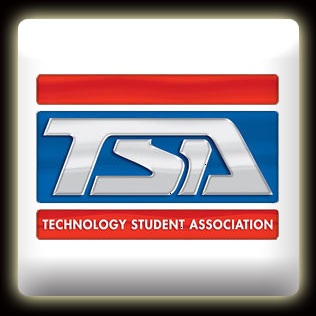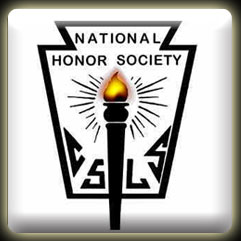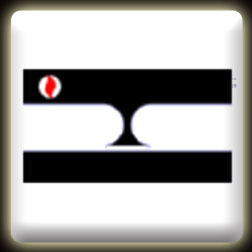Catch 22 Essay
Yossarian
The heroic figure typically portrayed in classical myth and fantastic stories is one of courage, bravery, and self sacrifice. This idea has become the stereotypical hero. Yossarian in Joseph Heller’s Catch 22, is a heroic figure, but his commitment to heroism changes constantly throughout the novel.
Yossarian often commits actions that would never be thought to be heroic, in a stereotypical sense. During the first attack of Bologna, Yossarian makes his flight crew turn back, “For an intercom,” (151) instead of bombing the target, and gets punished for it. This is sharply contrasted to the bombing of the bridge at Avignon. Yossarian is willing to go back a second time just to finish the job. This is not only a direct show of bravery against the Italian and German flak, but also a statement of dissension against the pre-established rules of 127th Airborne, and thus a statement against bureaucracy and government. Yossarian is also disrespectful and discourteous to all of his peers. Even in the same scene, Yossarian says, “Turn back … before I break your head” (151). He accosts Major Major Major Major in his tent when Major Major Major Major refused to speak with him. Yossarian despises Aarfy and has repeatedly attempted to physically injure him. His treatment of his friends is no better. He tries to “slid[e] his hands around McWatt’s neck to strangle him” (327) on Thanksgiving. He even refers to his best friend Dunbar as, “One of the finest, least dedicated men in the whole world” (22). These are not generally seen as heroic ideals. Most stereotypical heroes are kind and courteous to others, or develop a sense of respect as their respective stories transpire. Yossarian is of neither kind, but he does become more responsible and respectful as the story goes on.
This change can be seen in the way that Yossarian is described in various parts of the novel. Near the beginning, Yossarian is pleased with the fact that he didn’t help building the officer’s club. His attitude is one of “a mighty sense of accomplishment each time he gazed at it and reflected that none of the work that had gone into it was his” (27). Nearer to the end of the novel however, when dealing with Nately’s whore’s kid sister, he feels honor-bound to “protect her from harm” (420). This is much closer to the figure that modern readers think of when they hear the word “hero.” This is a Yossarian who actually cares about someone besides himself, and who is willing to take into account the feelings of others when he attempts to do something radical or unorthodox.
Yossarian can also be considered a hero due to his defecation of common military practices in an attempt to flout governmental authority. When the Air Force bureaucracy decides for Yossarian to fly his mission to Bologna, he does everything in his power to rectify what he sees as a problem, the fact that he has to fly to Bologna. Yossarian does everything from pretending to be sick with a “Garnett-Fleischaker syndrome” (70), to moving the bomb line to stir up confusion. This event can be taken in two ways. There is an argument that Yossarian was being cowardly and attempting to save his own life by doing these things, but in the way that Heller presents the events, Yossarian is not put in such a negative light. There really are no consequential acts of punishment against Yossarian, and the rest of the squadron is overjoyed at the delays. Another of Yossarian’s heroic moments is when he receives his medal for the bombing of the bridge at Avignon. By appearing without any clothing, Yossarian is attempting to make a statement about the practices of squadron leadership. Yet again, he begins to flout authority. Eventually Yossarian is able to cause enough disruption to change Colonel Cathcart into a radically anti-Yossarian commander. Yossarian’s impact on all of the characters is a display of how heroic he really is.
One of the main contrasts that Heller presents in Catch-22 is that of Major ________ de Coverly and Yossarian. Major ________ de Coverly is a “splendid, awe-inspiring, grave old man with a massive leonine head and an angry shock of wild white hair that raged like a blizzard around his stern, patriarchal face” (141). This image inspires scenes of a heroic old man, resplendent in his glorious, powerful abilities, and commanding of all officers below and above him. Major ________ de Coverly is not that man. Major ________ de Coverly is seen by many to be a fraud, a cheapskate, and a slacker. He spends entire weeks playing horseshoes, waiting for Major Major Major Major’s men to capture a city, so that he could go in and reserve hotels for all of the men. This visage is sharply contrasted with Yossarian, in that Yossarian is ironically more capable, more relatable, and more heroic than Major ________ de Coverly, despite Major ________ de Coverly’s appearance and attitude.
The main turning point in Yossarian’s attitude toward the ideas of war and bureaucracy is Snowden’s death. During this event, Yossarian displays some of his most heroic ideals. When Yossarian first learns of Snowden’s injury, he rushes back into the plane to help him. The first act of Yossarian upon reaching Snowden is to curse M&M Enterprises. M&M Enterprises is Heller’s allusion to big business and bureaucracy. Yossarian’s abilities are juxtaposed with the tail gunner, who merely faints every time he wakes up, showing that Yossarian is much braver and more capable than expected. As Yossarian helps Snowden, he becomes more and more confused about Snowden’s secret. When Snowden’s secret is finally revealed, Yossarian does the only thing he can, “He pulled the rip cord of Snowden’s parachute and covered his body with the white nylon sheets” (450). Snowden’s secret is the single most important turning point for Yossarian in the context of his character and attitude toward the war.
The main ideas of this novel are that war is terrible and that government is incapable. The idea of Yossarian’s heroism can be tied directly to these two ideas. When Yossarian is confronted with Catch-22, he tries to get around it. When Yossarian is confronted with the terrors of Rome, he begins to question his own integrity. When he experiences Snowden’s death, his entire attitude changes. Yossarian is the embodiment of the themes that Heller is trying to convey. This is explained by Yossarian’s attitude toward war and to bureaucracy. In the last chapter, Yossarian is able to empower the Chaplain and allow him to “punch Captain Black in the nose” (461), because of his ability to persevere in the face of what seems like impossible odds. This is the Chaplain’s way of saying that government is not in control, and we can rebel whenever we want to. Yossarian also spends a good two or three months without any clothes on because of Snowden’s death. Even though all of his friends and superiors told him to put his clothes on, Yossarian was steadfast in his deposition of the gruesome tragedies of war.
By manipulating the actions and attitudes of Yossarian, Heller has displayed the wartime equivalent of a hero. Not a war where the victors are those who posses the land, the resources, or the manpower at the end, but a war where the victors are those who survive. Yossarian doesn’t care who wins, he just wants to live. That makes him a hero. He is willing to stand up for what he believes in, and doesn’t care what happens to him as long as “they” don’t kill him.



